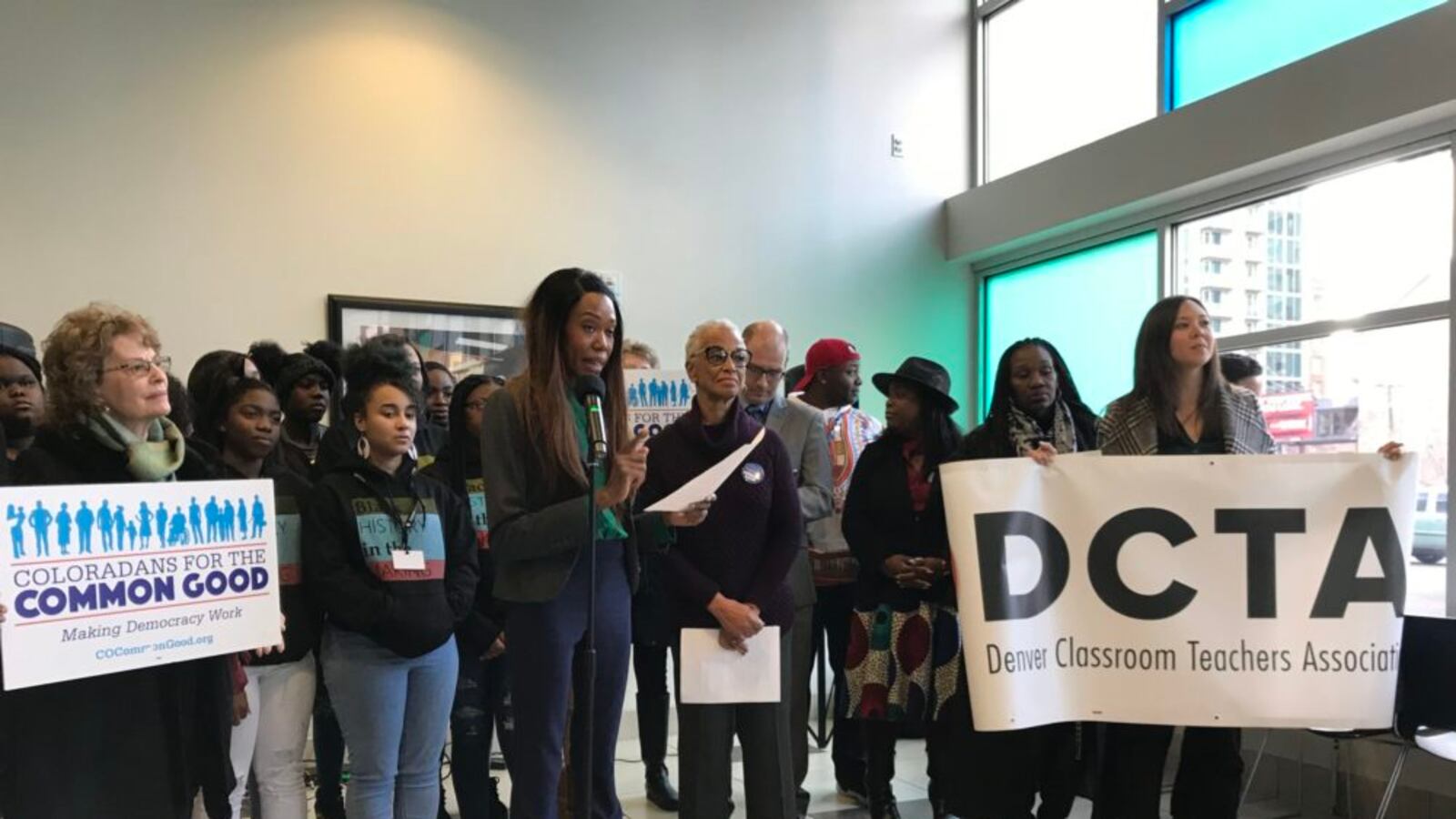A new black educators caucus within the Denver teachers union called on the district Thursday to address systemic racism, including by creating a team to focus on hiring more teachers of color. Despite previous district efforts, Denver’s teaching force remains overwhelmingly white.
“I can vividly remember the four black teachers I’ve had in the 13 years I’ve been a [Denver Public Schools] student,” said Jhoni Palmer, a senior at East High School.
Palmer said each of them nurtured and challenged her.
“Never did I have to wonder if this teacher hates me for the color of my skin, and never did I have to wonder whether I was good enough to be in this class,” said Palmer, who spoke at an event with the Denver Classroom Teachers Association and Coloradans for the Common Good, a group of churches and unions.
Six of the seven Denver school board members either attended the event or signaled their support for the caucus.
The black educators caucus is also taking aim at a process that strips some Denver teachers of union contract rights. Known as “innovation status,” it’s meant to help schools improve by giving them flexibility from state and district rules, as well as portions of the union contract.
About a quarter of Denver’s more than 200 schools have innovation status. That includes schools in northeast Denver that serve many black students and employ black teachers, caucus members said.
Teachers at would-be innovation schools vote on whether to waive those rules and rights, including job protections. State law requires 60% of teachers vote yes. But some union members see several flaws in the process.
Teachers are only given two weeks to review their school’s proposed innovation plan, including the waivers, before voting. Often, teachers said, the decision is framed as a choice between what’s best for students and teachers’ rights.
Standing with the black educators caucus, school board member Brad Laurvick said he plans to propose a change to district policy next month.
“Teachers shouldn’t have to vote against their own needs to support the needs of our students,” said Laurvick, who was elected in November with backing from the teachers union.
Union President Tiffany Choi said the proposal would have teachers vote on the waivers one by one in a separate vote two weeks before they vote on the innovation plan as a whole. The goal is to make the process more transparent, and allow teachers to protect their contract rights.
In all, the black educators caucus asked the district to take four actions: change the innovation approval process, create a team to focus on hiring more teachers of color, boost counseling and mental health services for students, and follow through with the steps laid out in a year-old school board resolution meant to improve education for black students.
“Little to no progress has been made in the district to solve these concerns,” said Monica Hunter, a caucus member who teaches second grade.
Board Vice President Jennifer Bacon, who sponsored the resolution last February, said Thursday that while some steps in the resolution have been followed, many are still in progress.
For example, the resolution called for all district staff to be trained in implicit bias. That has started with staff who work in the central office, Bacon said, and will be rolled out to all district staff “over the next couple of years.”

